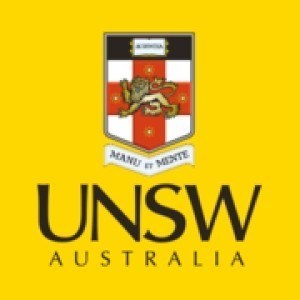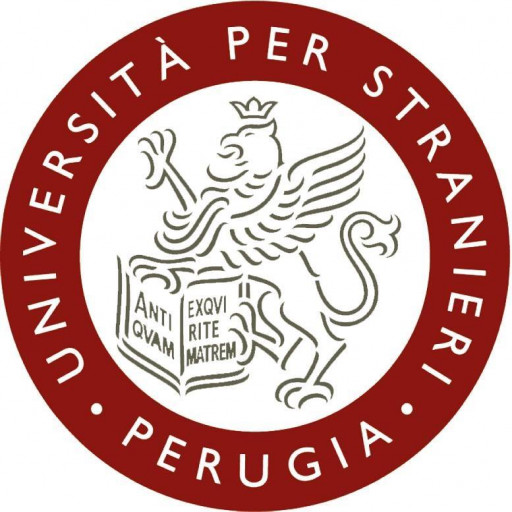Photos of university / #unsw
The Master of Vision Science at the University of New South Wales is a comprehensive graduate program designed to equip students with advanced knowledge and practical skills in the field of visual science. This program is ideal for individuals seeking to deepen their understanding of the anatomy, physiology, and pathology of the human visual system, as well as those interested in careers in clinical practice, research, or industry related to vision and eye health. The curriculum covers a broad range of topics including ocular anatomy, optics, electrophysiology, visual perception, binocular vision, oculomotor function, and visual development. Students also gain hands-on experience through laboratory work, clinical placements, and research projects, allowing for the application of theoretical knowledge in real-world settings. The program is suitable for graduates with backgrounds in health sciences, psychology, biology, or related disciplines, and it prepares students for professional roles such as optometrists, vision scientists, researchers, or specialists in optometry clinics and vision correction industries. The Master of Vision Science emphasizes a multidisciplinary approach, encouraging students to explore innovative solutions for vision problems and to contribute to advancements in eye health and visual technology. With access to state-of-the-art laboratories and expert faculty, students are supported in developing critical thinking, research skills, and a strong foundation in evidence-based practice. Graduates of this program will be well-positioned to pursue further research opportunities, registration in optometry and vision science fields, or leadership roles within the industry. This program reflects UNSW’s commitment to excellence in education and research, fostering a vibrant community of students and professionals dedicated to improving visual health worldwide.
Areas in which postgraduate students may undertake research include:
- vision science,
- visual psychophysics,
- pure and applied research and clinical significance,
- optical imaging or
- ocular biology research.
- Applicants shall have been awarded an appropriate Bachelors degree with Honours from the University of New South Wales or an equivalent qualification from another university or tertiary institution at a level acceptable to the Faculty of Science Higher Research Degree Committee. In some cases, the applicant may be required to carry out a qualifying program before being permitted to enrol.
- Candidates may be admitted to the PhD program after one years full-time enrolment in a Masters by Research program, with the approval of the Faculty of Science Higher Research Degrees Committee. Candidates may also be permitted to downgrade from a PhD to an MSc, with the approval of the Faulty of Science Postgraduate affairs Committee
- IELTS Academic version only 6.5 overall (min. 6.0 in each subtest)
- TOEFL Internet-based Test (iBT) 90 overall (min.23 in writing, 22 in reading, listening and speaking)
- TOEFL Paper-based Test (PBT) 577 overall (min. 5.0 in TWE)
- Electronic transcripts*: Applicants need to provide a scanned or electronic copy of transcripts for all tertiary degrees completed or attempted, including current degrees. For those students undertaking a research degree which does not have specific scores, an enrolment summary will be required to show which semesters the applicant was enrolled. All pages of one transcript, including the original language copy, should be provided in one document.
- Grading systems*: These are explanations of what specific scores/grades mean at a specific University/Institution. These must be provided for each University the applicant has attended.
- Curriculum Vitae (CV)*: This must include details of previous research, such as a summary of all research outputs and experience, including publications, conference presentations, etc. Work samples such as abstracts may be attached as appendices to the CV.
- Research Proposal*:
- Supervisor Contact*
- Testamurs: These are certificates of completion for prior degrees. If you are currently studying, the testamur for this degree can be submitted at a later date. Your application can be provisionally assessed without these. All pages of one testamur, including the original language copy, should be provided in one document.
- Current/Final semester results: This is only required for any students still undertaking a tertiary degree. These are not required until you have completed all requirements of your current degree, including any thesis components. Once you have completed, you will need to submit your final transcript and any examiners reports (if applicable).
The University of New South Wales offers various financing options for students enrolled in the Vision Science program. Domestic students can access a range of scholarships, grants, and loan schemes designed to assist with tuition fees and living expenses. Commonwealth Supported Places (CSP) are available, which significantly reduce the cost of tuition for eligible Australian citizens and permanent residents. Students may also apply for university-specific scholarships based on academic merit, financial need, or research excellence, which can provide full or partial tuition fee waivers.
For international students, the university offers competitive scholarships and financial assistance programs, although these are typically limited and highly competitive. International students are encouraged to explore external scholarships offered by government agencies and private organizations to support their studies. Payment plans are also available, allowing students to spread their tuition fees over manageable installments instead of paying a lump sum at the start of each semester.
Additionally, students can access various external funding sources, including government loan schemes such as the Australian Government's HECS-HELP and FEE-HELP programs, which assist eligible students in covering tuition costs. These loans are repaid through the tax system once the student is employed and earning above a certain income threshold.
The university provides comprehensive financial guidance services to help students understand their options, apply for scholarships, and plan their finances effectively throughout their studies. Students are encouraged to review the detailed eligibility criteria and application procedures on the university’s official website and consult with the financial aid office for personalized assistance. Overall, the Vision Science program at UNSW is supported by a robust framework of financial aid options aimed at making the program accessible and affordable for a diverse student body.
The Vision Science program at the University of New South Wales (UNSW) is a comprehensive and interdisciplinary degree designed to provide students with an in-depth understanding of the visual system, covering aspects from basic neuroscience to clinical applications. This program aims to prepare graduates for careers in research, clinical practice, and industry by offering a curriculum that integrates physiology, psychology, optics, and biomedical sciences. Students enrolled in this program will have opportunities to learn about the anatomy and physiology of the eye, visual perception, eye movement, binocular vision, and visual disorders. The program emphasizes both theoretical knowledge and practical skills, often including laboratory work, research projects, and clinical placements to ensure students gain hands-on experience.
The degree typically spans three years of full-time study, though part-time options may be available depending on the student's circumstances. Core courses may include eye physiology, visual neuroscience, optics, perception, and statistical methods for science. Elective units allow students to tailor their education toward specific interests such as clinical vision care, research methodology, or advanced topics in neuroscience and optics. UNSW’s faculty comprises experts in vision science, optometry, neuroscience, and psychology, offering students mentorship and exposure to cutting-edge research.
Graduates from the Vision Science program are well-positioned for further study in related fields such as optometry, neuroscience, or biomedical research, or to enter careers in eye care clinics, research institutions, educational roles, or industry sectors involved in optical technology and vision products. The program's comprehensive training ensures that students develop critical thinking, analytical skills, and a solid foundation in scientific principles relevant to visual health and technology. Additionally, students benefit from the university’s strong links with industry and healthcare providers, enhancing employability through internships, seminars, and collaborative projects. Overall, UNSW’s Vision Science program is designed to foster innovation, scientific excellence, and a commitment to improving ocular health and visual performance across diverse populations.










